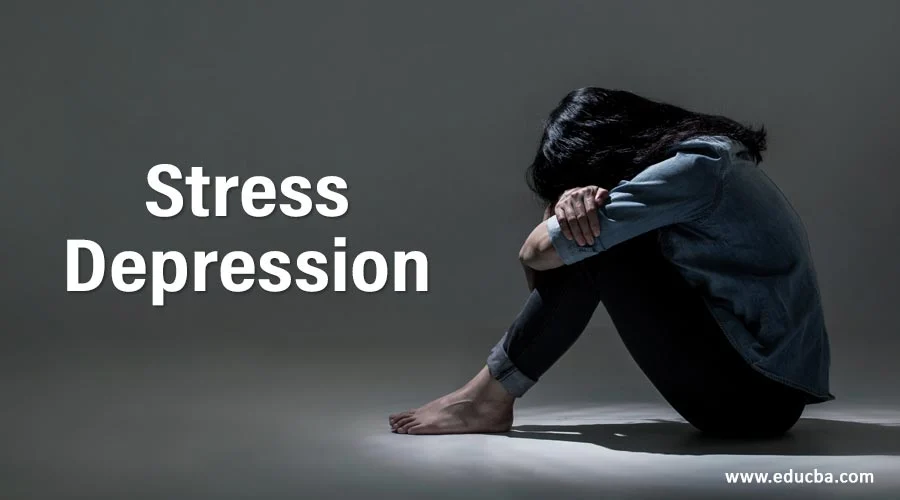How to Cope with Stress and Depression: A Comprehensive Guide to Mental Well-Being
In today’s fast-paced world, stress and depression have become common challenges that affect millions of people. Whether it’s due to work pressures, personal relationships, or societal expectations, managing these mental health issues is crucial for overall well-being. This blog will provide you with practical strategies and actionable tips to cope with stress and depression, helping you regain control of your life and improve your mental health.
Understanding Stress and Depression
Before diving into coping mechanisms, it’s essential to understand what stress and depression are and how they impact your life.
- Stress: Stress is your body’s response to challenging situations. While short-term stress can be motivating, chronic stress can lead to physical and emotional health problems.
- Depression: Depression is a mental health disorder characterized by persistent feelings of sadness, hopelessness, and a lack of interest in activities. It can significantly affect your daily life and overall happiness.
Both stress and depression are interconnected, and addressing one can often help alleviate the other.
Recognize the Signs of Stress and Depression
The first step in coping with stress and depression is recognizing the signs. Common symptoms include:

- Physical Symptoms: Fatigue, headaches, muscle tension, and changes in appetite or sleep patterns.
- Emotional Symptoms: Irritability, anxiety, feelings of overwhelm, and a lack of motivation.
- Behavioral Symptoms: Social withdrawal, procrastination, and increased reliance on unhealthy coping mechanisms like alcohol or overeating.
If you notice these signs, it’s important to take action before they escalate.
Effective Strategies to Cope with Stress and Depression
Here are some proven strategies to help you manage stress and depression effectively:
1. Practice Mindfulness and Meditation
Mindfulness and meditation are powerful tools for reducing stress and depression. These practices help you stay present, calm your mind, and gain perspective on challenging situations.
- Mindfulness: Focus on the present moment without judgment. Pay attention to your thoughts, your feelings, and do not take stress from surroundings.
- Meditation: Spend 10-15 minutes daily meditating to reduce anxiety and improve emotional well-being.

2. Exercise Regularly
Physical activity is one of the most effective ways to combat stress and depression. Exercise releases hormone called endorphins, which are the natural mood boosters.
- Aim for 30 Minutes Daily: Activities like walking, jogging, yoga, or dancing can significantly improve your mental health.
- Outdoor Activities: Spending time in nature can further enhance the benefits of exercise.
3. Build a Strong Support System
Having a support system is crucial when dealing with stress and depression. Surround yourself with people who are actually your goodprayer
- Talk to Friends and Family: Share your feelings with trusted loved ones.
- Join Support Groups: Online or in-person support groups can provide a sense of community and understanding.
4. Prioritize Self-Care
Self-care is essential for managing stress and depression. Make time for activities that bring you joy and relaxation in your life and enjoy them.
- Healthy Diet: Eat a balanced diet rich in fruits, vegetables, and whole grains to support your mental health.
- Adequate Sleep: Aim for 7-9 hours of sleep each night to recharge your body and mind.
- Hobbies and Interests: Engage in activities you love, whether it’s reading, painting, or gardening.
5. Seek Professional Help
If stress and depression become overwhelming, don’t hesitate to seek professional help. Therapists, counselors, and psychiatrists can provide valuable support and treatment options.
- Therapy: Cognitive Behavioral Therapy (CBT) is particularly effective for managing stress and depression.
- Medication: In some cases, medication may be necessary in order to manage symptoms. Consult a healthcare personally to provide you guidance.
Lifestyle Changes to Reduce Stress and Depression

Making small but meaningful lifestyle changes can have a significant impact on your mental health.
- Limit Screen Time: Reduce exposure to negative news and social media, which can exacerbate stress and depression.
- Set Boundaries: Learn to say no to unnecessary activities and prioritize your well-being.
The Role of Technology in Managing Stress and Depression
In 2025, technology offers innovative solutions for managing stress and depression.
- Mental Health Apps: Apps like BetterHelp, Talkspace, and Woebot provide therapy and support at your fingertips.
- Wearable Devices: Track your stress levels and receive reminders to practice mindfulness or take breaks.
- Online Resources: Access articles, videos, and courses on mental health to educate and empower yourself.
Final Thoughts: You’re Not Alone
Coping with stress and depression can feel overwhelming, but remember that you’re not alone. By implementing these strategies and seeking support, you can take meaningful steps toward improving your mental health.
If you or someone you know is struggling with stress and depression, don’t hesitate to reach out for help. Mental health is just as important as physical health, and taking care of yourself is the first step toward a happier, healthier life.





